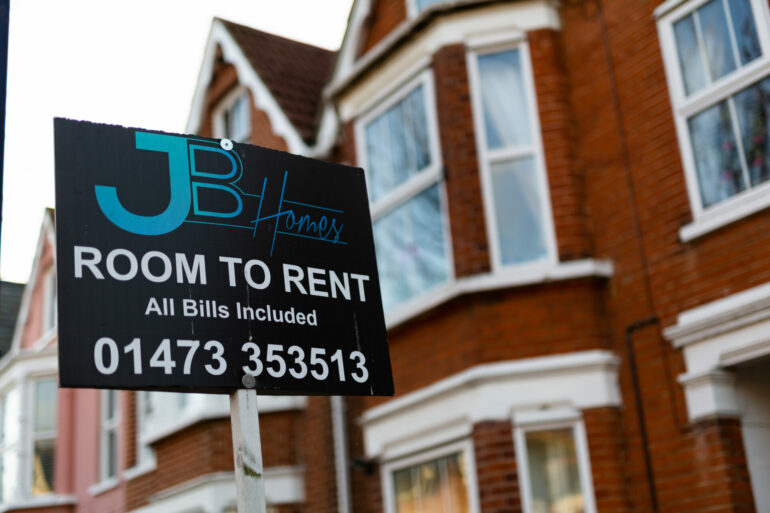Propertymark’s latest figures showed the North East was the most affordable region to rent in August, with average rent at £865 a month.
This meant renters typically needed a salary of £25,950 to pass referencing checks.
In London, the average salary needed to rent dropped by 1.9% from £73,050 in 2024 to £71,670 in 2025.
The highest increase was seen in Yorkshire and Humberside, with the salary needed rising 8.1% from £27,990 last year to £30,270.
Outside London, the South East was the most expensive with average rent at £1,497 a month and a required salary of £44,910.
In Scotland, average rent stood at £1,150 with a salary requirement of £34,500. Northern Ireland came in at £947 rent and £28,410 salary.
Wales saw no change year-on-year, with rent at £1,004 and salary at £30,120.
The East Midlands rent was £981 a month, with a salary needed of £29,430.
The East of England rent was £1,346, needing a salary of £40,380.
The North West saw rent at £1,151 and salary at £34,530.
The South West rent averaged £1,279, with a salary requirement of £38,370.
The West Midlands was at £1,048 and £31,440 respectively.
Comparing August 2025 to August 2024, London, the East Midlands, East of England, North East, South East, and West Midlands all saw a drop in the salary needed to rent.
Yorkshire and Humberside had the highest increase at 8.1%.
Month-on-month changes from July to August 2025 showed rents in Northern Ireland fell by 4.4%.
The North West and Yorkshire and Humberside saw the biggest monthly rent rises at 4.8% and 5.8%.
Megan Eighteen, president of ARLA Propertymark, said: “Year-on-year, rental rises have eased across many areas of the country.
“Much of the private rented market has reached its peak when it comes to affordability, and coupled with slowly decreasing interest rates, this is starting to make rents soften slightly.
“However, this will not be enough to bring down rents to more affordable levels across the board in the longer term.”
Eighteen added: “The private rental landscape is varied across the UK, with trends fluctuating drastically in some instances.
“However, one fact remains – there is a complete undersupply of available homes of all types and tenures, and other costs to landlords, such as the scrapping of mortgage interest relief and the introduction of endless red tape and licensing schemes have huge implications across the board and are contributing to the previous spikes seen in raised rent levels.
“Private rented homes have always played a crucial role in housing the nation, and a stream of professional, law-abiding landlords should be encouraged to help keep pace with growing demand rather than penalised by a continuous bombardment of financial and regulatory hurdles.”



